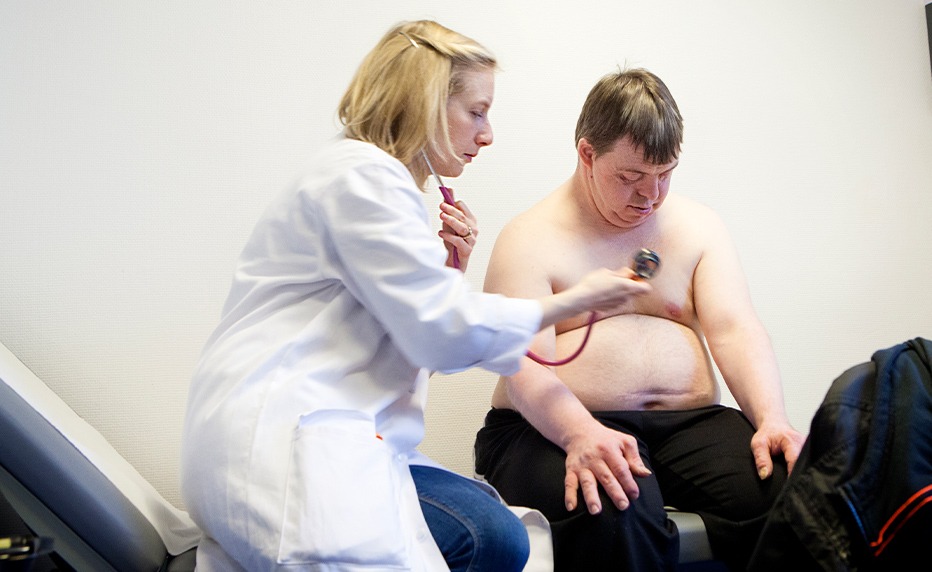
By Laude de Verdun, dietician at the Jérôme Lejeune Institute.
By properly understanding the mechanisms of weight gain and obesity, we can allow friends and family to educate and help their loved one with Down syndrome.

What might be the causes of excess weight and obesity?
There may be multiple causes of excess weight or obesity. These can include genetic predisposition, weight-gaining treatments (antipsychotics, antiepileptics), eating habits, food-related impulsivity, lack of options for physical activity and sport, and a sedentary lifestyle.
Prevention and treatment of excess weight among people with Down syndrome can be achieved through therapeutic education involving their close circle. It is often complicated for these dependent people to avoid gaining weight. They may have many people around them who aren’t all aware of how important it is to prevent excess weight. People with Down syndrome often gain weight after moving into care home type institutions.
Here are some explanations:
Conclusion
It is important for this population to opt for low GI foods from a young age and to limit snacking and sugar intake outside of meals. Soda and candy vending machines should be banned in care homes in the same way they are in schools in France (law of August 9, 2004 on public health policy, which prohibits the installation of vending machines in schools as of September 1, 2005).
Since it has such a significant impact on their health, special attention should be paid to the diet of people with Down syndrome on a daily basis.

Sign up to receive our newsletter and stay informed of new content!
Votre inscription a bien été prise en compte